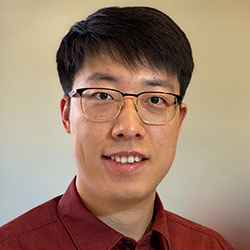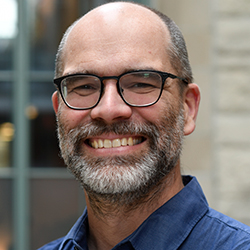PhD Student Kangle (Phil) Mu Wins Best Paper Award at IEEE DySPAN 2024
Mu and Berry proposed a new method for wireless spectrum regulators to allocate spectrum resources shared concurrently among commercial service providers and other high-priority users
Northwestern Engineering’s Kangle (Phil) Mu earned the Best Paper Award in the policy track at the 2024 Institute of Electrical and Electronics Engineers (IEEE) International Symposium on Dynamic Spectrum Access Networks (DySPAN), held May 13 – 16 in Washington, DC.

The DySPAN symposium showcases pioneering advancements and collaboration in the domain of radio frequency spectrum, including spectrum sensing, access, sharing, and utilization across emerging wireless technologies.
The winning paper, "Market Impacts of Pooling Intermittent Spectrum," is co-authored by Mu’s adviser, Randall Berry, John A. Dever Chair of Electrical and Computer Engineering at the McCormick School of Engineering.
“Receiving the Best Paper Award is an incredible honor and a significant personal achievement. This award is a big milestone in my PhD journey and really boosts my confidence. I’m incredibly grateful to Randy and everyone who supported me along the way. This award is a team effort, and I couldn’t have done it without their help and encouragement.”
In this work, Mu and Berry studied a new method for wireless spectrum regulators to allocate spectrum resources shared concurrently among commercial service providers (AT&T, T-Mobile) and other high-priority users (US Navy and fixed satellites) more efficiently.
Mu explained that the temporal sharing of systems such as the Citizens Broadband Radio Service results in intermittently available spectrum for wireless service providers.

“Based on our model, service providers are expected to incur less traffic congestion so that they can provide better service to their users and make more profits,” Mu said.
As a next step, Mu and Berry are considering writing an extended version of this research for an academic journal. They plan to incorporate a more generalized model and provide additional experimental results to strengthen their findings.
Mu earned a master’s degree in electrical and computer engineering from the University of Michigan in 2022 and a bachelor’s degree in telecommunication engineering in 2020 from Xidian University in Xi'an, Shaanxi, China.
